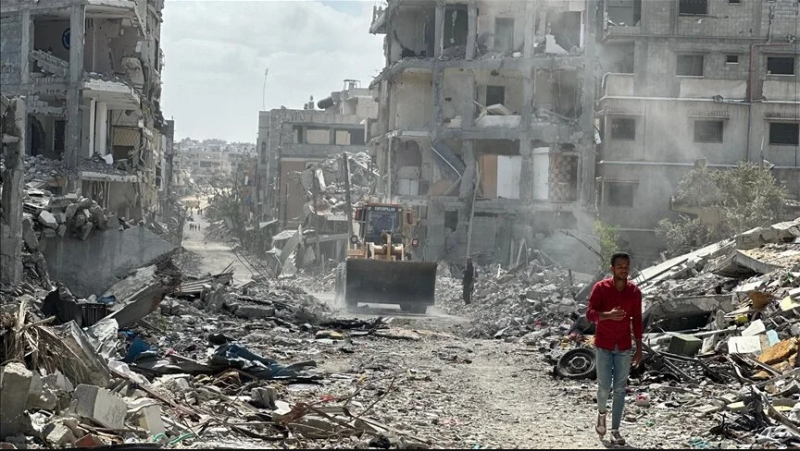Dr Nawaz Bhatti
Despite decades of discussions and concerns, the threat of climate change remains largely unaddressed, particularly for developing nations. This inaction by the developed world, the primary contributor to greenhouse gas emissions, compels us to consider a stark reality: climate change as a new weapon of universal destruction aimed at developing countries.
While conferences like COP 28 offer temporary hope, the track record of developed nations suggests that their commitments often fall short. UN reports warn of temperature rises exceeding the agreed-upon 1.5 degrees Celsius, with devastating consequences for vulnerable nations. These consequences include:
- Intensified natural disasters: Droughts, floods, wildfires, rising sea levels, and extreme storms will impact millions, leading to displacement, loss of property, and economic devastation.
- Water scarcity: Melting glaciers and erratic rainfall patterns will exacerbate water scarcity, jeopardizing agriculture, sanitation, and public health.
- Declining biodiversity: Rising temperatures and habitat loss will contribute to mass extinctions, disrupting ecosystems and further impacting food security and livelihoods.
Pakistan stands as a stark example of a nation grappling with the consequences of climate change. Its diverse topography has made it vulnerable to a multitude of threats, including glacial melt, floods, droughts, and water scarcity. The human cost is immense, with millions displaced, livelihoods lost, and communities shattered.
Beyond the tangible losses, we must also consider the intangible consequences of climate change. Psycho-social impacts like emotional distress, displacement trauma, and disruption of education have far-reaching effects on families and communities. Additionally, the rise of climate-related diseases like malaria, diarrhea, and heat stress poses a significant health threat.
Please, subscribe to the YouTube channel of republicpolicy.com
The burden of addressing these challenges falls disproportionately on developing nations, often with limited resources and expertise. While some NGOs exist to support rural development and capacity building, their efforts are hampered by insufficient funding and a lack of international support.
This begs the question: how is climate change a weapon of universal destruction? The developed world, responsible for the crisis, shows little urgency in aiding developing nations. This lack of assistance hinders their ability to mitigate the effects of climate change, leading to a decline in human development indices and the perpetuation of a cycle of poverty and vulnerability.
The developed nations must recognize their responsibility and act accordingly. This includes:
- Significantly increasing financial contributions to climate funds, with prioritization based on need rather than geo-political considerations.
- Transferring clean technologies to developing nations to help them transition to low-carbon economies.
- Providing technical expertise to assist developing nations in building their capacity to adapt to climate change and mitigate its effects.
Pakistan is one of the countries that are most vulnerable to the effects of climate change. The country has already experienced a range of climate-related disasters, including floods, droughts, and heatwaves. To avoid a climate crisis, Pakistan must take a range of measures across different sectors.
- Cultural: Cultural factors can play an important role in addressing climate change. Pakistan has a rich cultural heritage that can be leveraged to promote sustainable practices. For example, traditional farming practices that rely on organic fertilizers and crop rotation can help reduce the use of chemical fertilizers and pesticides. Additionally, cultural practices that promote conservation of natural resources, such as water and forests, can help reduce the impact of climate change.
- Administrative: The administrative branch of the government can play a crucial role in addressing climate change. The government can establish agencies or departments that are responsible for monitoring and regulating environmental issues. These agencies can conduct regular inspections and audits to ensure that businesses and individuals are complying with relevant regulations. Additionally, the government can provide training and support to businesses and individuals to help them understand and comply with these regulations.
- Legislative: The legislative branch of the government can also contribute to addressing climate change. The government can pass laws that require businesses and individuals to reduce their carbon footprint and adopt sustainable practices. Additionally, the government can offer incentives to businesses and individuals that comply with these regulations, such as tax breaks or access to credit.
- Environmental: Environmental factors are critical to addressing climate change. Pakistan has a diverse range of ecosystems, including forests, wetlands, and deserts. Protecting these ecosystems is essential to mitigating the effects of climate change. Additionally, the government can work to reduce pollution and promote sustainable practices, such as renewable energy and green transportation.
- Developmental: Developmental factors are also important to addressing climate change. Pakistan is a developing country that faces a range of economic and social challenges. To address climate change, the government can work to promote sustainable development that balances economic growth with environmental protection. This can include investing in renewable energy, promoting sustainable agriculture, and improving access to education and healthcare.
- Other measures: Other measures that Pakistan can take to address climate change include promoting public awareness and education about climate change, investing in research and development of new technologies, and working with other countries to develop international agreements and partnerships.
The developed world must take decisive action to support developing nations in tackling the climate crisis. If they fail to do so, the consequences will be devastating for millions and will further exacerbate the already vast inequality between developed and developing nations.
Please, subscribe to the monthly magazines of republicpolicy.com

















